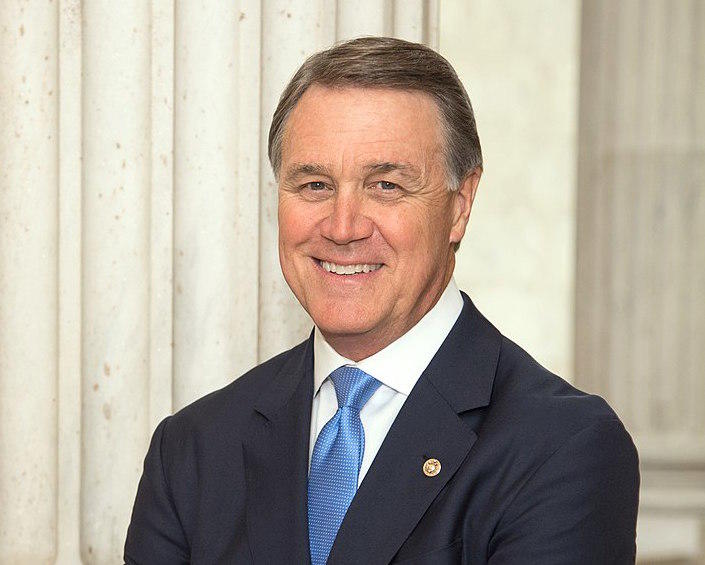Section Branding
Header Content
Sen. David Perdue Urges Diplomatic Response To North Korea
Primary Content
Is there hope for a diplomatic solution to the rising nuclear threat of North Korea? If you ask Sen. David Perdue (R-GA), diplomacy is the only hope.
Speaking on a panel for business leaders and non-governmental organizations in Buckhead today, Perdue agreed emphatically with one of the other speakers, retired Air Force general Richard E. Hawley, that the only viable path to a lasting de-escalation with North Korea is through diplomatic outreach and negotiation.
“There’s no other solution; there’s only a diplomatic solution,” Hawley said. “Nothing else would solve the problem, and might create a much worse problem.”
Hawley said that he was encouraged by China’s shared interest in “the de-nuclearization of the Korean peninsula,” saying that if the U.S. continually demonstrates to China, Japan and South Korea that “we are in this to solve it, then I think we might get there.” He added that a lasting solution will require patience, but said he doubts that the North Korean regime can be changed aside from hopefully cutting off nuclear access.
“I agree one hundred percent,” Perdue said in response to Hawley. He added that he was hopeful about global cooperation in addressing the North Korean threat. “If you look at what China and Russia didn’t do on the U.N. sanctions on North Korea, they didn’t veto it. That’s a huge step.”
He said that he “knows for a fact” that North Korean sanctions were a topic discussed in April, both when Chinese president Xi Jingping came to the U.S. and when Secretary of State Rex Tillerson went to Moscow. “We needed them to abstain [from vetoing North Korean sanctions], and that’s exactly what they did. And now we have those sanctions,” Perdue said.
However, he warned that the strength of U.S. sanctions depends on the strength of the U.S. economy, saying that other world leaders like Brazil and France must also actively oppose North Korea. “The shadow banking system, and the technology that’s now used to move money around the world, is what makes those sanctions tough to have teeth like they did 20 years ago,” he remarked.
Perdue quoted Secretary of Defense James Mattis in saying that the biggest threat to national security is the national debt. “We can’t solve every problem off of our budget. There’s no physical way to do it,” Perdue said. “We’re borrowing about 35 percent of what we spend as a federal government...every dime we spend on the military, every dime we spend on the V.A., every dime we spend on domestic discretionary programs like aid is borrowed money.”
Perdue also expressed concern about the rising Chinese influence and investment in Africa, saying that their model of bringing Chinese nationals onto the continent instead of training locals is not a sustainable strategy for Africa.
A group of about 20 protesters greeted the attendees as they were leaving the panel. The demonstrators -- part of a group called Resist Trump Tuesdays, which have had public demonstrations since President Donald Trump’s inauguration in January -- demanded that Perdue host a public town hall to hear grievances against his support for Trump. The group’s organizer, Caroline Stover, decried Perdue’s response to a white supremacist rally in Charlottesville as “somewhat neutral,” and said that she wanted Perdue to “speak out not just against white supremacists, but to speak out against Donald Trump, who is our leader but who has not been leading this country in a moral way.” Perdue has been an outspoken supporter of the president.
The panel was hosted by the U.S. Global Leadership Coalition, a non-profit that works to unite business, NGOs, politicians and the military behind foreign affairs issues.

